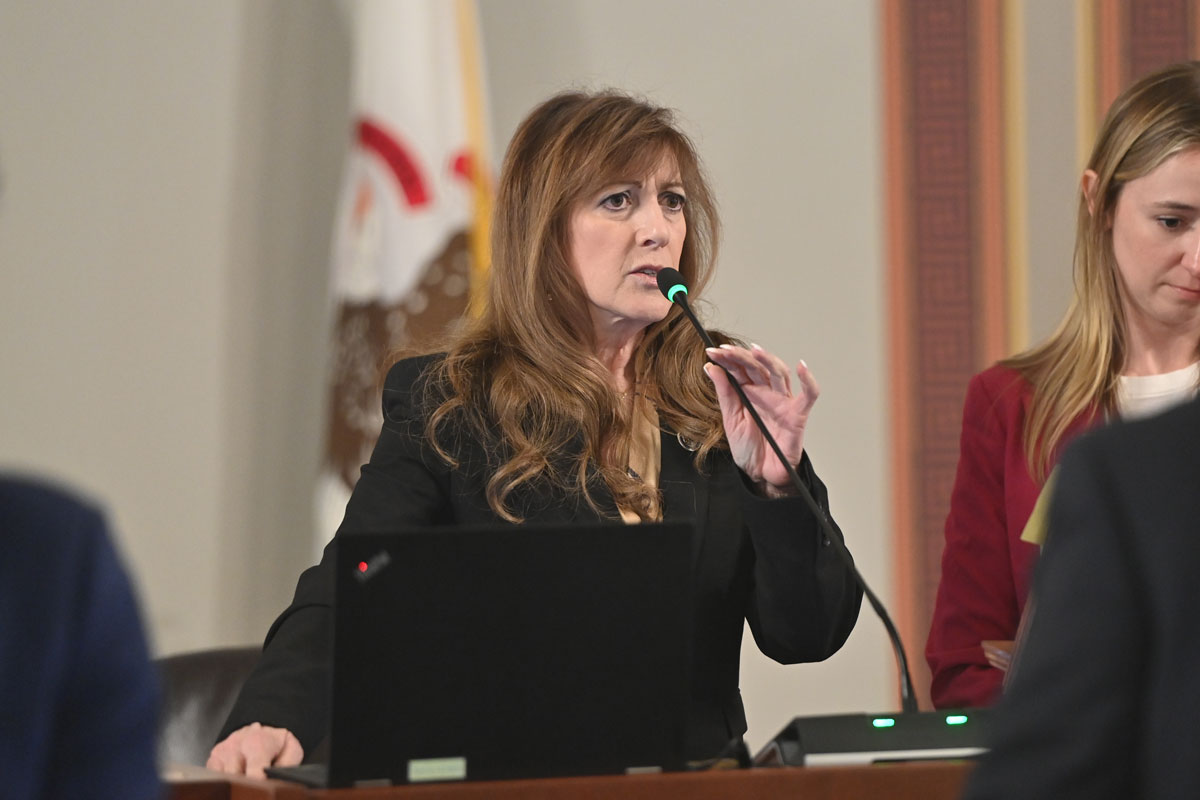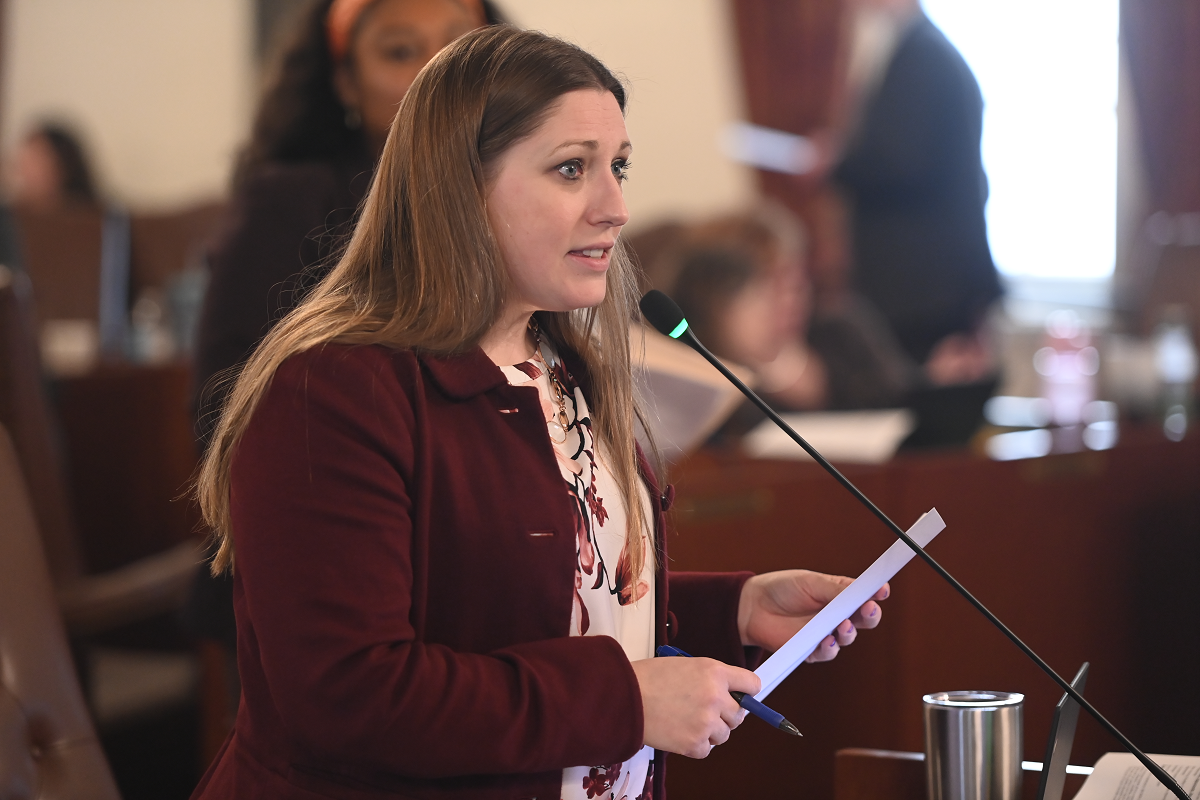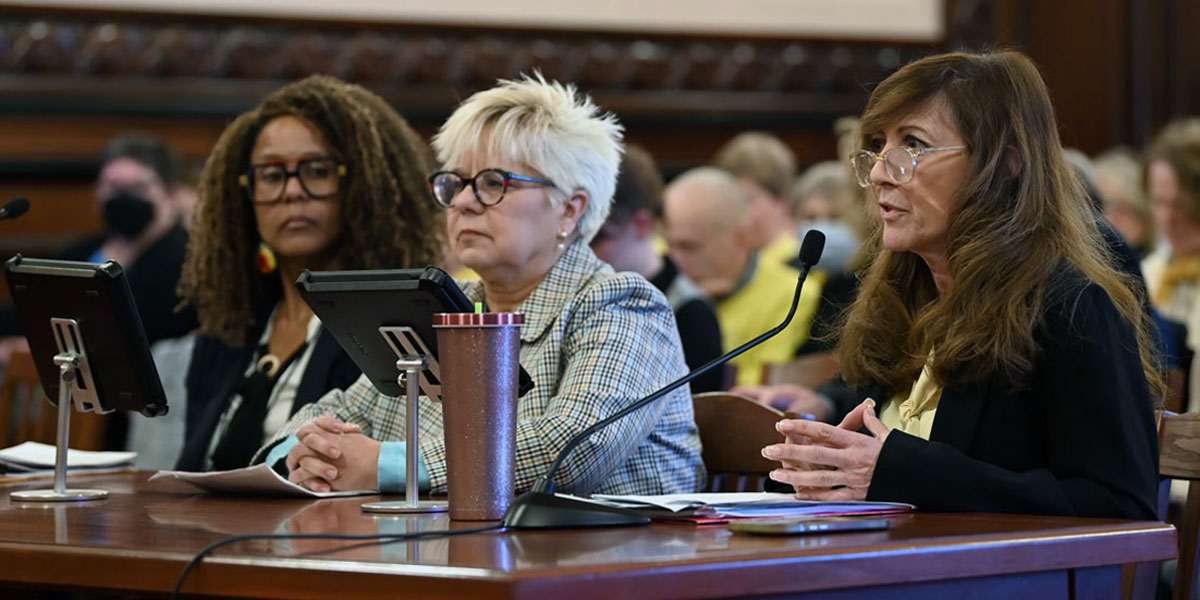Turner measure protecting the public’s safety in an emergency passes the Senate
- Details

SPRINGFIELD – State Senator Doris Turner led a measure through the Senate that would increase public safety by suspending EMS professionals who have been charged with a crime while performing their duties.
“EMS professionals who cause harm to the public need to be held accountable,” said Turner (D-Springfield). “Public safety has to be at the forefront of our priorities, especially during an emergency.”
Senate Bill 3134 would allow the director of the Illinois Department of Public Health, or their designee, to determine if the suspension of an EMS professional should extend statewide. This would apply in situations when an EMS professional has been charged with a crime while performing their official duties and continuing to practice poses the possibility of harm to the public.
Read more: Turner measure protecting the public’s safety in an emergency passes the Senate
Holmes works to boost transparency in health insurance, document understaffed networks
- Details
 SPRINGFIELD – State Senator Linda Holmes—a leader with a successful track record of passing pro-consumer health care legislation—advanced a measure through the Senate Wednesday that would require insurers to document whether they have enough physicians and specialists to diagnose and treat their patients.
SPRINGFIELD – State Senator Linda Holmes—a leader with a successful track record of passing pro-consumer health care legislation—advanced a measure through the Senate Wednesday that would require insurers to document whether they have enough physicians and specialists to diagnose and treat their patients.
“When people go to the doctor, they expect they’ll get the care and urgency their condition calls for, but they often have to wait weeks or months for a diagnosis and treatment when they live in smaller communities,” said Holmes (D-Aurora). “They might suffer needless anxiety or fear waiting on help, simply because the network is understaffed.”
Read more: Holmes works to boost transparency in health insurance, document understaffed networks
Senate advances Hunter bill to make asthma inhalers more affordable
- Details

SPRINGFIELD — Individuals with asthma could see significant savings on their prescription inhalers thanks to legislation from State Senator Mattie Hunter that passed the Senate on Thursday.
“No one should struggle to afford their medication while big companies profit,” said Hunter (D-Chicago). “While insurance plans cover a portion of asthma treatment costs, we can do more to eliminate the barriers individuals face when trying to manage this long-term condition.”
Senate Bill 3203 limits the cost an individual with health insurance pays for an inhaler to $25 for a 30-day supply. Under Hunter’s measure, health insurance providers would be prohibited from denying or limiting coverage for prescription inhalers beginning Jan. 1, 2026.
Read more: Senate advances Hunter bill to make asthma inhalers more affordable
Ventura passes measure to mitigate climate change
- Details

SPRINGFIELD – To tackle growing emission rates from automobiles and trucks, State Senator Rachel Ventura spearheaded legislation through the Senate that would create a grant for local governments to help mitigate the impact of climate change.
“By encouraging local governments to plant native trees and grasses, which are proven to help mitigate climate change through carbon capture, we can aid the process of healing our planet for future generations significantly,” said Ventura (D-Joliet). “This grant opportunity would make a big difference in every corner of the state – tackling the deterioration of the planet head on.”
The ramifications of the climate crisis are felt across all tiers of government. With heightened frequency and intensity of storms, local administrations face the imperative of managing flooding and devising solutions for dirt and snow drifts. Moreover, the escalating emissions from transportation and fossil fuel sources demand urgent attention. Scientific research underscores the efficacy of native grasses and trees in carbon capture. In response to these pressing needs, this bill endeavors to establish a grant program tailored for local governments.
Read more: Ventura passes measure to mitigate climate change
More Articles …
Page 207 of 735
























 © 2026 Illinois Senate Democratic Caucus
© 2026 Illinois Senate Democratic Caucus